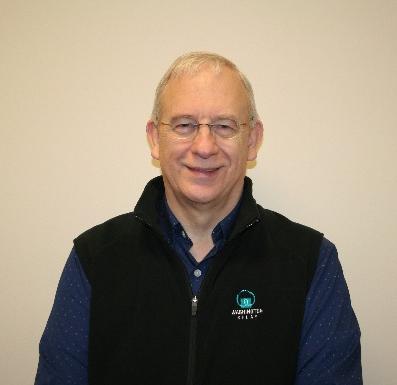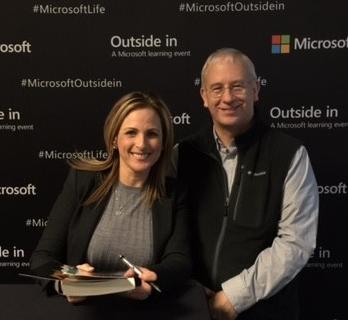

Steven Peck is currently the WA State Office of the Deaf and Hard of Hearing (ODHH) Telecommunications Relay Services (TRS) Program Manager. Steven has been a Staff member at ODHH since December 2000 and has managed various programs which include the Washington Telecommunications Relay Services (WATRS), Assistive Communication Technology (ACT), Social Human Services (SHS), National Deafblind Equipment Distribution Program (NDBEDP), and Communication Facilitator (CF) services. Steven was involved in the initial implementation of the Washington Video Relay services in partnership with Communication Services of the Deaf (CSD) and Sprint Relay. Steven was nominated and appointed to serve as a representative for the National Association of State Relay Administrators (NASRA) on the Rolka Loube (RL) iTRS Advisory Council, which is the TRS Fund Administrator that advises the Federal Communications Commission on TRS issues, TRS fund rates, regulations and interoperability standards. Steve also serves as a member of the CIEP Advisory Group in relation to Emergency Alerts and Training. He will retire at the end of November 2025.
CIEP: You have worked for many years at ODHH. What made you choose this job?
Steve: I’ve worked for ODHH for 25 amazing years. Prior to joining ODHH, I was working for a global electronics corporation called Tektronix Inc in two different divisions that included Spectrum Analyzers which is a device that tracks missiles for the military and the TV network systems which help TV broadcasters generate appropriate colors for their TV broadcasting. I was part of an engineering team and worked with another deaf software engineer on that team. Tektronix had about 100 deaf employees at the time and about 5 or 6 of us were involved with electronic technology testing and Hex Decimal software regression testing which validates the engineering design of the products Tektronix sells. Leon Curtis, who was the ODHH director at the time contacted me to apply for a position at ODHH and I turned down the encouragement to apply approximately five times until the last request he encouraged me to just come and be interviewed. At the time, Tektronix Inc was downsizing and selling off some of their divisions and some of my teammates started transitioning to Intel and other electronic companies. I was encouraged to join the Intel Team, but I wasn’t convinced that was a good choice because I would have been the only deaf staff there. As a result, I accepted Leon’s invitation and submitted my application and resume. Upon being interviewed by the ODHH Team, I was asked to sit outside the conference room for about 15 minutes and then I was called back in to meet with Leon and his interview team, I was offered the position as the FCC compliance Officer. I notified Leon and the interview team that I’d like to take the opportunity to sit down with my family and discuss this potential transition to work fo
CIEP: Have you personally experienced a disaster, and what was it like?
Steve: Yes, I experienced the Nisqually earthquake while in the DSHS OB2 building in February 2002 which disrupted wireless services and damaged some buildings including the DSHS OB2. I also witnessed Mt. St. Helens eruption in 1980 since Mt St Helens was visible and only 50 miles away. It was a shocking experience that dumped about 4 to 5 inches of ash on our home. We had to wear masks and replace our vehicle air filter every week to prevent damage to the vehicle engine and our lungs. It wasn’t a pretty sight to experience but we survived. I have a glass jar of the Mt St Helens ash in my storage bin that has never been opened since I scooped it up at my home to remember that event.
CIEP: What Access and Functional Needs gaps do you see in emergency planning?
Steve: One big gap is the ability to provide emergency alerts in ASL and captioning/Text which I believe would benefit many deaf, HH and Deafblind community members. First, I’m hopeful that the FCC will soon require that ASL must be included in all emergency alerts. There’s already laws and policies established for this purpose and this applies to cities, counties, and state government emergency agencies. Secondly, Jim just started community training in Spokane and I’m hoping that it will expand to other cities within the state to help disability groups prepare themselves better for emergencies and disasters. Third, I would suggest considering a state emergency app that all disability groups can use to obtain information in relation to emergency notices, alerts and disasters information in a language that they can understand. Fourth, I would strongly recommend community trainings for disability groups to learn to better prepare themselves. Fifth, training for emergency staff to understand how to appropriately communicate with deaf, deafblind and individuals with hearing loss.
CIEP: What are some of the best practices you have noticed?
Steve: I appreciate the fact that the CIEP advisory group continues to meet and discuss important aspects of emergency preparedness to ensure disability groups remain informed about emergency alerts. Many of the CIEP members have brought to the table many important items and I hope that continues going forward to improve emergency alerts for disabled community members and those with a hearing loss. I believe technology will play a role in updating emergency alerts for all involved but need to continue to consider apps that will work best for disability groups in our state.
CIEP: After your retirement, what do you envision for CIEP’s future?
Steve: CIEP is an amazing group of people that are dedicated to improving access to emergency alerts for those with a disability. I envision CIEP’s future to continue to advocate as an advisory group for accessible emergency alerts to ensure that residents with disabilities will receive emergency alerts in a language that they can understand, protect themselves and be safe. I believe community trainings would be a benefit to the disability communities and individuals with a hearing loss statewide to learn how to prepare for an emergency or disaster and have an emergency kit ready to go in the event there is an evacuation order. I sincerely hope that the CIEP will continue to ensure that over 300,000 Washingtonians with a disability will be able to obtain emergency alerts in a language that they can understand, protect themselves and their families and be safe. I state this because as an advisory member of CIEP, I have personally been impacted by emergency notifications and disaster situations and this is the reason my comments are to encourage emergency agencies, CIEP and other groups to ensure that all disability groups receive an emergency alert in a message they can understand, protect themselves and their families and be safe. I hope that your energy and inspiration to make a difference in a disabled person’s life and help protect themselves in an emergency.
